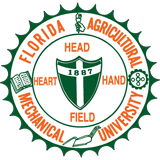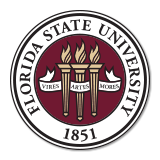Math Option to Replace MAP 3306
Announced Fall 2004
MAD3401, MAD3703, MAP3306, MAP3341/MAP4341, MAS3105, STA3034/STA3032
| FAMU | FSU |
|---|---|
|
MAD 3401 Numerical Analysis (3). Major topics: solutions to scalar nonlinear and finite difference equations; numerical differentiation and integration; error and convergence; general interpolation problems, interpolation and quadrature, numerical solutions of algebraic and transcendental equations. |
MAD 3401 Introductory Numerical Analysis (3). Prerequisites: MAC 2312; competence in a programming language suitable for numeric computations. Polynomial interpolation, data fitting, solutions to nonlinear equations, numerical integration, and differentiation. Not open to mathematics majors. |
| Recommended for ME students interested in computational mechanics or following Dynamic Systems and Thermal Fluids tracks. | |
| MAD 3703 Numerical Analysis I (3). Prerequisites: MAC 2312; MAS 3105; FORTRAN or PASCAL or C. Root finding, interpolation and polynomial approximation, numerical differentiation and integration, direct and iterative methods for systems of linear equations. |
|
| Recommended for ME students interested in computational mechanics or following Thermal Fluids Track. | |
| MAP 3306 Engineering Mathematics II (3). Prerequisites: MAP 3305 and MAC 3313. Vector calculus. Solution of partial differential equations by separation of variables, Sturm-Louville problems, Fourier series, complex numbers, complex integrals. |
MAP 3306 Engineering Mathematics II (3). Prerequisites: MAC 2313; MAP 2302 or MAP 3305. Not open to students having credit in MAP 4341. Fourier series and Fourier transforms, introduction to partial differential equations. |
| Strongly recommended for ME students intending to pursue a PhD in Mechanical Engineering, Magnet Science and Technology, Thermal Fluids tracks. | |
| MAP 3341 Partial Differential Equations (3). Prerequisite: MAC 2313. Major topics: solution of first-order partial differential equations, classification of linear second-order partial differential equations, separation of variables, initial value and initial boundary value problems. |
MAP 4341 Elementary Partial Differential Equations I (3). Prerequisites: MAC 2313; MAP 2302 or 3305. Separation of variables,Fourier Series, Sturm-Liouville problems, multidimensional initial boundary value problems, nonhomogeneous problems, Bessel functions and Legendre polynomials. |
| Recommended for ME students following Thermal Fluids Track. | |
| MAS 3105 Linear Algebra (3). Prerequisites: MAC 2312 or consent of instructor. Investigation of systems of linear equations, vector spaces over a field, linear transformations, theory of determinants and canonical forms. |
MAS 3105 Applied Linear Algebra 1(4). Prerequisite: MAC 2312. Gaussian elimination, vector spaces, least squares problems, determinants, eigenvalues and eigenvectors, linear transformations, applications. |
| Recommended for ME students following Dynamic Systems Track. Required for transfer students entering with Differential Equations. | |
| STA 3032 Applied Statistics for Engineers and Scientists ME students take for 3). Prerequisite: MAC 2312. This course will cover calculus-based probability, discrete and continuous random variables, joint distributions, sampling distributions, and central limit theorem. Topics include descriptive statistics, interval estimates and hypothesis tests, ANOVA, correlation, simple and multiple regression, analysis of categorical data, and statistical quality control. |
|
| Recommended for ME students who will be entering industry jobs upon completion of their BS in ME. Required for BSMS students |
|
| STA 3034 Mathematical Statistics (3). Prerequisite: MAC 2312. Major topics: analysis of variance; multiple regression; contingency tables; experimental design, calculus based. |
|
| Recommended for ME students who will be entering industry jobs upon completion of their BS in ME. | |
| EML 4930 Numerical Methods for Engineers (3). Prerequisite: MAP 3305 The objective of the Numerical Methods for Engineers class is to teach programming and numerical methods to solve engineering/scientific problems in an effective and efficient manner to meet the needs of industry, government, and academia. To achieve the objective, the course will leverage on the use of MATLAB which is now the de facto standard for scientific computing. This teaching style is intended to keep students engaged and have them develop practical programming skills. The students should have completed Calculus I, II, and III (MAC2311, 2312, & 2313), and differential equations or engineering math (MAP3305 or 2302). We do not assume expert knowledge of programming for students entering this class. |
|
| Recommended for ME students interested in computational mechanics or following Dynamic Systems and Thermal Fluids tracks. | |

